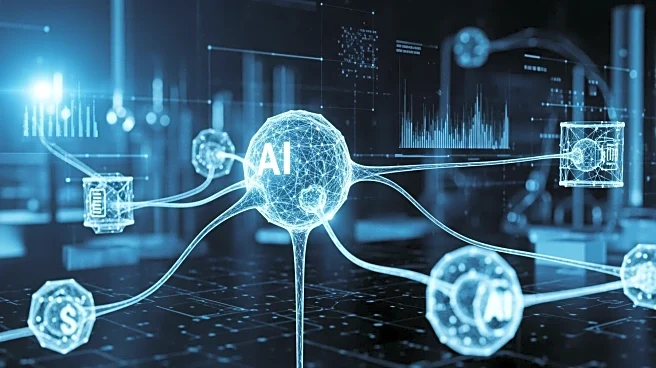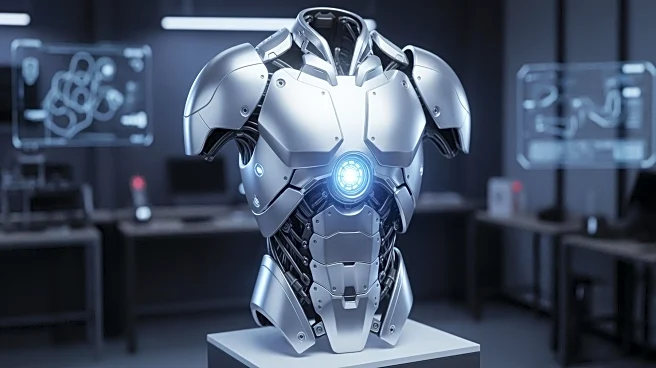What's Happening?
Artificial intelligence (AI) is poised to revolutionize vaccine production by optimizing manufacturing processes and reducing costs. According to Addepally Uma, PhD, AI can predict optimal culture conditions,
nutrient feed, and purification parameters, maximizing yield and improving process robustness. AI-driven systems facilitate automated sampling, in-line analytics, and robotic filling lines, which enhance process output, reduce waste, and minimize contamination. Predictive maintenance enabled by AI can identify early signs of equipment wear, allowing timely interventions and reducing downtime. These advancements are expected to lower production costs and increase patient access to vaccines.
Why It's Important?
The application of AI in vaccine production could significantly impact public health by making vaccines more affordable and accessible. By optimizing production processes, AI can help overcome challenges associated with complex biological systems and reduce the costs of upstream and downstream operations. This technological advancement is crucial in addressing global health needs, especially in developing countries where vaccine affordability is a major concern. The ability to predict and prevent equipment failures also enhances the reliability and efficiency of vaccine manufacturing, potentially leading to faster and more widespread distribution.
What's Next?
The continued integration of AI in vaccine production is likely to attract interest from industry stakeholders looking to improve efficiency and reduce costs. As AI technologies evolve, they may offer even more sophisticated solutions for optimizing production processes and ensuring quality control. The potential for AI to transform vaccine manufacturing could lead to collaborations between technology developers and pharmaceutical companies, driving innovation and expanding access to life-saving vaccines worldwide.









